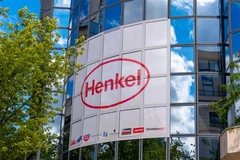Tetra Pak introduces “factory of the future” as Industry 4.0 appeal widens

29 Mar 2019 --- Tetra Pak is to unveil its “factory of the future,” in which digital technology is used to revolutionize the way food manufacturing plants operate. Within this futuristic model, machines will be able to communicate with each other as well as with the digital systems of the entire operation. It enables tasks to be completed automatically, as well as diagnosing problems, ordering and delivering parts and finding an engineer who is most suitable for the service needed. The full system will be presented at Hannover Messe 2019 in Germany, 1-5 April.
Industry 4.0 is a term that has been coined to denote the age of “smart manufacturing.” It entails fully-integrated collaborative systems that respond in real time to meet changing demands and conditions in the factory. It is where automation combines with IT networks and systems – enriched through live and constantly available data and analytics – to drive operations more efficiently.

 The technology builds on previous measures to bring the benefits of digitalization to the food and beverage industry, such as the launch of Tetra Pak Plant Secure, a plant management service that aims to deliver profitability improvements for its customers. Leveraging Tetra Pak’s investments in Industry 4.0 technologies, the service uses data-driven analytics and Tetra Pak’s industry expertise to identify and deliver improvements across a customer’s entire value chain.
The technology builds on previous measures to bring the benefits of digitalization to the food and beverage industry, such as the launch of Tetra Pak Plant Secure, a plant management service that aims to deliver profitability improvements for its customers. Leveraging Tetra Pak’s investments in Industry 4.0 technologies, the service uses data-driven analytics and Tetra Pak’s industry expertise to identify and deliver improvements across a customer’s entire value chain.
Supported by smart, connected solutions within the “factory of the future,” the workforce should be able to focus on managing the plant, making quick, informed decisions and continuously increasing the speed of production, reducing errors and minimizing product waste.
“We are in a period where the market is changing at high speed. Consumer demands coupled with regulations require a new way of food manufacturing that is much more efficient and food-safety guaranteed,” says Johan Nilsson, VP Industry 4.0 and Digitalization at Tetra Pak.
“At the same time, we believe humans should continue to be at the center of the management of food manufacturing, with digital solutions as their support,” he adds.
Tetra Pak has been working on the digitalization of food manufacturing with partners including Microsoft, ABB, SAP and the automated logistics solutions provider Elettric80. Combining these cutting-edge technologies with the company’s food experience, Tetra Pak’s ultimate goal is to lead the digital transformation of food manufacturing and offer greater support to its customers in the digital era.
A glimpse of the future
Speaking to PackagingInsights at the Inside Tetra Pak event held in October 2018, Nilsson noted how food and beverage manufacturing is about quality of output. However, up until now, this has largely been done through random checks which are costly and not always accurate. However, Industry 4.0 brings a change to this space that has not perhaps developed as fast as it could have done.
“By being more systematic in this and doing process control – through leveraging digital technologies – it will bring a more effective and efficient quality management process. Doing the right things in the right way, so you are not spending too much on achieving too little. This will bring safer food more cost-effectively,” he said..jpeg) Family-owned The Wilkinson Baking Company has unveiled The BreadBot – the world’s first fully automated bread making machine.
Family-owned The Wilkinson Baking Company has unveiled The BreadBot – the world’s first fully automated bread making machine.
Tetra Pak is not the only industry company innovating on this platform. Family-owned The Wilkinson Baking Company unveiled The BreadBot – the world’s first fully automated bread making machine – at the Consumer Electronics Show 2019 in Las Vegas (CES) in January.
Meanwhile, aseptic carton packaging supplier SIG has recognized the potential for robotics and AI in its processing lines.
“A good example of this is the SIG Robotic Magazine for high-speed filling machines – called R-CAM,” Stefan Mergel, Senior Product Manager Equipment, SIG, tells PackagingInsights. “It enables manufacturers to create more efficient workflows and to reduce manual work hours. The R-CAM is integrated into the filling line in front of the SIG filling machines and able to load the filling machine with 24k carton sleeves, fully automatically.”
SIG’s R-CAM creates more efficient workflows and, in doing so, reduces manual work hours and physical strain on the staff. “It allows them to concentrate on higher-value tasks instead of dealing with pallets, containers and loading jobs,” Mergel explains.
In the words of Tetra Pak, it is time for the industry to catch up with the changing world and embrace the digitalization of industry.
By Laxmi Haigh











